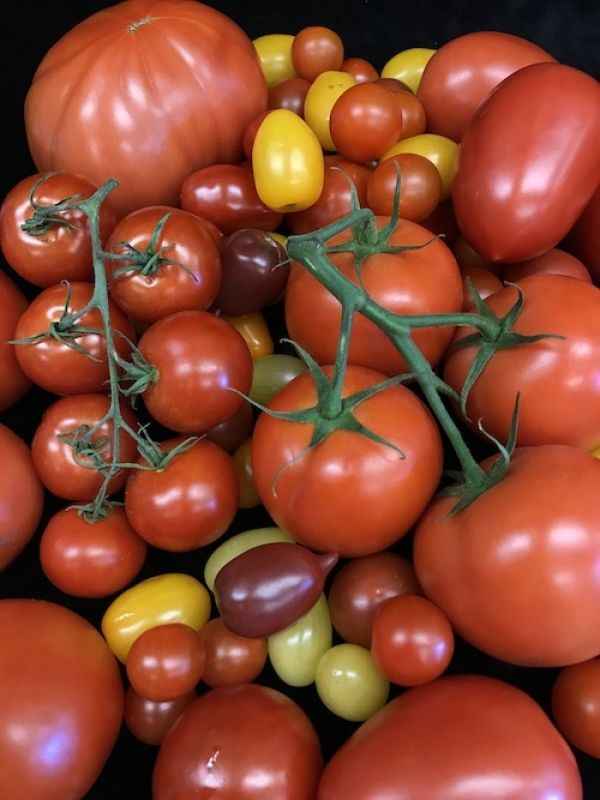Human appetites have transformed the tomato – DNA and all. After centuries of breeding, what was once a South American berry roughly the size of a pea now takes all sorts of shapes and sizes, from cherry-like to hefty heirloom fruit.
Today, scientists are teasing out how these physical changes show up at the level of genes – work that could guide modern efforts to tweak the tomato, says Howard Hughes Medical Institute Investigator Zachary Lippman.
He and colleagues have now identified long-concealed hidden mutations within the genomes of 100 types of tomato, including an orange-berried wild plant from the Galapagos Islands and varieties typically processed into ketchup and sauce.
Their analysis, described June 17, 2020, in the journal Cell, is the most comprehensive assessment of such mutations – which alter long sections of DNA – for any plant. The research could lead to the creation of new tomato varieties and the improvement of existing ones, Lippman says. A handful of the mutations his team identified alter key characteristics, like flavor and weight, the researchers showed.
Read more at Howard Hughes Medical Institute
Image: After centuries of breeding, tomatoes now take all sorts of shapes and sizes, from cherry-like to hefty heirloom fruit. Scientists are teasing out at the level of genes how and why these physical changes show up. Credit: Lippman Lab/CSHL/HHMI


